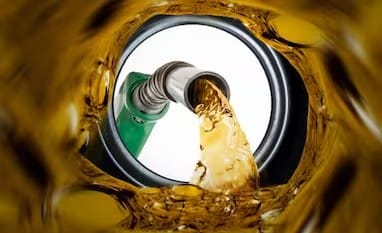Fuel choice plays an essential role in determining the performance, fuel efficiency, and overall health of a car’s engine. Many car owners in India face confusion when selecting between regular petrol (91 octane), 95 octane, and 98 octane fuels. Understanding the key differences between these fuel types can help drivers make informed decisions, ensuring that their vehicles operate smoothly and efficiently.
What Are Octane Ratings?
Octane ratings measure a fuel’s ability to resist premature ignition, known as “knocking” or “pinging,” in an engine’s combustion chamber. Knocking occurs when the air-fuel mixture ignites too early, causing a knocking sound and potential damage to engine components. Higher octane fuels are more resistant to knocking, making them suitable for high-performance or turbocharged engines.
The most common octane ratings available are:
- 91 Octane (Regular Petrol): Standard unleaded fuel suitable for most cars.
- 95 Octane (Premium Petrol): Offers higher resistance to knocking, improving engine efficiency.
- 98 Octane (Ultra-Premium Petrol): Best for high-performance or sports cars requiring maximum engine performance.p

Regular Petrol (91 Octane)
Characteristics:
- Widely available and the most commonly used fuel across India.
- Designed for cars with standard compression engines that do not require high-octane fuel.
- Typically the least expensive fuel option.
Advantages:
- Cost-effective: Ideal for budget-conscious drivers.
- Suitable for Standard Engines: Works well in vehicles designed to run on 91 octane fuel.
Disadvantages:
- Lower Fuel Efficiency: Provides less power and efficiency compared to higher-octane fuels.
- Risk of Knocking: Can cause knocking in engines that require higher-octane fuel, potentially damaging pistons and valves.
Best For:
- Older models and vehicles with standard compression engines.
- Economy cars and daily drivers.
Premium Petrol (95 Octane)
Characteristics:
- Provides better resistance to knocking and improves engine efficiency.
- Often recommended for imported cars, turbocharged engines, and motorcycles.
- Enhances performance without the higher cost of 98 octane.
Advantages:
- Improved Engine Efficiency: Reduces knocking and provides smoother performance in cars that require higher octane.
- Better Fuel Economy: Can lead to slight improvements in fuel efficiency for compatible engines.
Disadvantages:
- Higher Cost: More expensive than regular 91 octane fuel.
- Unnecessary for Standard Engines: Offers no performance benefits in vehicles designed for regular petrol.
Best For:
- Imported cars or turbocharged engines.
- Vehicles recommended by manufacturers to use 95 octane.
Ultra-Premium Petrol (98 Octane)
Characteristics:
- Highest octane rating available in most regions.
- Specifically designed for high-performance, turbocharged, and high-compression engines.
- Provides maximum engine protection and reduces carbon buildup.
Advantages:
- Maximized Engine Power: Delivers superior performance in engines designed for high-octane fuel.
- Cleaner Combustion: Reduces carbon deposits, improving engine longevity.
- Prevents Knocking: Protects engine components in high-performance vehicles.
Disadvantages:
- Expensive: Considerably more costly than 91 and 95 octane fuels.
- No Benefit for Standard Engines: Unnecessary in vehicles not designed to utilize higher octane.
Best For:
- High-performance sports cars.
- Turbocharged or supercharged engines that require 98 octane.
Understanding Engine Compatibility and Fuel Choice
Using the right fuel type is crucial for maintaining engine health and ensuring optimal performance. Misuse of fuel can have lasting effects on your vehicle’s engine:
- Using Lower Octane Than Required:
- Leads to knocking, excessive heat, and possible engine damage.
- Can harm critical engine parts like pistons, valves, and spark plugs.
- Using Higher Octane Than Recommended:
- Provides no additional benefits in most standard engines.
- Waste of money without any improvement in performance or fuel efficiency.
Manufacturer Guidelines:
Always refer to the vehicle’s user manual to determine the appropriate fuel type. Some high-performance engines are calibrated to operate with higher-octane fuel, while most regular cars are optimized for 91 octane.
Cost Comparison of Fuel Types in India
Fuel prices in India vary based on region, taxes, and market fluctuations. Below is an approximate cost comparison based on current average prices:
| State | Petrol Price (₹/L) |
|---|---|
| Andhra Pradesh | ₹97.41 |
| Telangana | ₹96.24 |
| Kerala | ₹95.41 |
| Uttar Pradesh | ₹95.11 |
| Maharashtra | ₹106.47 |
| Tamil Nadu | ₹101.75 |
| West Bengal | ₹101.62 |
Prices may vary depending on the city and state, with metro cities typically having higher prices due to local taxes and transportation costs.
When Should You Choose Higher Octane Fuel?
There are specific situations where using higher-octane fuel is justified:
- Turbocharged or Supercharged Engines: These engines generate higher pressures that require fuel with better knock resistance.
- Performance or Sports Cars: Vehicles designed for speed and power benefit from high-octane fuel to ensure smooth operation.
- Imported or Luxury Cars: Manufacturers of these vehicles often recommend higher-octane fuels to protect engine longevity.
Mixing Different Octane Fuels – Is It Safe?
Mixing fuels with different octane ratings is not generally recommended. While occasional mixing may not cause immediate damage, consistent use can lead to inconsistent engine performance and potential long-term harm. For best results, stick to the fuel type recommended by the manufacturer.
Environmental Impact of Higher Octane Fuels
Higher octane fuels burn more efficiently and produce fewer emissions in high-performance engines, contributing to a reduction in environmental pollution. However, when used in standard engines, they provide no ecological benefits, making them less effective from an environmental standpoint.
Conclusion
Selecting the correct fuel type is essential to maintain the performance, fuel efficiency, and durability of your vehicle. Regular petrol (91 octane) is economical for standard engines, while premium (95 octane) and ultra-premium (98 octane) fuels are best suited for high-performance and turbocharged engines. Always follow manufacturer recommendations to avoid unnecessary expenses and potential engine damage. Making the right choice ensures smoother rides, improved fuel economy, and extended engine life.
Unlock Expert Car Tips with My Car Wisdom!
Get reliable advice on car maintenance, fuel efficiency, and performance upgrades. Whether you’re a new car owner or a seasoned driver, My Car Wisdom provides practical insights to keep your vehicle running smoothly.
Explore Now for Smart Car Care!
Visit My Car Wisdom for expert guidance on keeping your car in top condition.
Raja Yadav, the content writer at My Car Wisdom, brings a unique voice and style to our blog. With a knack for storytelling and a keen eye for detail, Raja ensures that every piece of content is informative, engaging, and easy to understand. His focus is on delivering high-quality articles that cater to both novice car owners and seasoned automotive enthusiasts.




